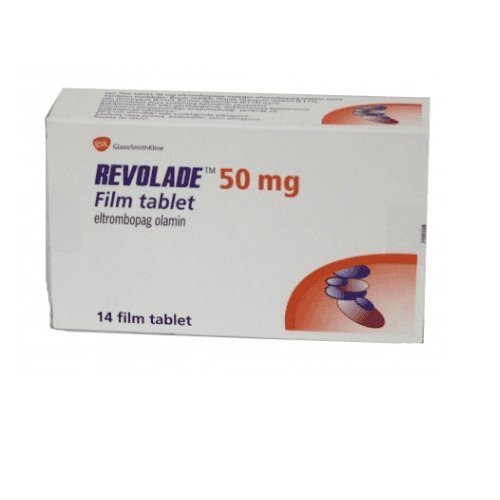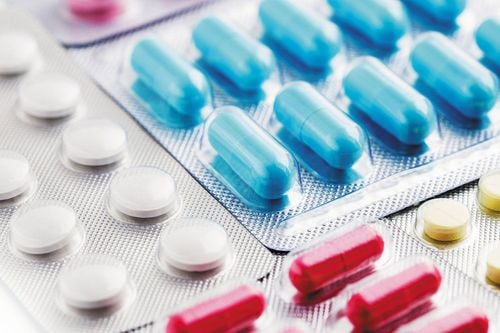Deca Durabolin contains the main active ingredient, Nandrolone, which has the effects of increasing calcium metabolism, stimulating bone marrow to produce red blood cells, and having minimal androgenic effects. This medication is indicated for the treatment of osteoporosis and anemia caused by chronic kidney disease or aplastic anemia.
1. What is Deca Durabolin?
Deca Durabolin is formulated as a solution with a concentration of 50mg/ml. Its main active ingredient is Nandrolone, which belongs to the group of long-acting anabolic steroids. This is a group of synthetic compounds chemically related to testosterone but with more anabolic effects and fewer androgenic effects. However, when using this drug, it is necessary to pay attention to its androgenic effects. Higher doses and longer treatment duration of Deca Durabolin can increase the risk of masculinization.
Additionally, Nandrolone has been shown to increase calcium metabolism in patients, as evidenced by increased urinary calcium excretion. Increased bone mass has been observed in postmenopausal women with osteoporosis during treatment with Deca Durabolin. Furthermore, Deca Durabolin also has a nitrogen-sparing effect and influences protein metabolism. At high doses, Deca Durabolin can stimulate bone marrow, leading to increased red blood cell production.
2. Indications for Deca Durabolin
Deca Durabolin is indicated in the following cases:
- Treatment of severe osteoporosis with clinical manifestations in postmenopausal women.
- Osteoporosis diagnosed based on the following parameters: compression fractures of the vertebrae or fractures in other bones.
- Treatment of reduced bone mineral density identified using recognized Bone Mineral Density Tests.
- Treatment of anemia due to chronic kidney failure or aplastic anemia.
3. Contraindications for Deca Durabolin
Deca Durabolin is contraindicated in the following cases:
- Patients with prostate cancer or male breast cancer.
- Patients hypersensitive to the active ingredient or excipients, including peanut oil.
- Pregnant women or breastfeeding women.
4. Dosage and Administration of Deca Durabolin
Administration:
Deca Durabolin is administered via deep intramuscular injection.
Dosage:
- For postmenopausal osteoporosis: The recommended dose is 50 mg once every 3 weeks.
- For anemia due to chronic kidney failure: Women: 100 mg once a week; Men: 200 mg once a week.
- For aplastic anemia: The recommended dose is 50–100 mg once a week. The onset of therapeutic effects may vary between patients; therefore, periodic monitoring is necessary to decide whether to continue or discontinue treatment based on therapeutic outcomes. If a patient does not show a complete response after 3–6 months of treatment, the therapy should be discontinued. After the patient's red blood cell count returns to normal, the dosage should be gradually reduced based on hematological test results. In case of relapse, retreatment can be considered. Note that severe cases of aplastic anemia may not respond to this treatment.
- For children: Currently, there is limited data on the use of Deca Durabolin in children. Therefore, extreme caution and close monitoring are required when administering the drug to this population.
The above dosages are for reference only. The specific dosage depends on the patient's condition and the severity of the disease. Patients must consult healthcare professionals for appropriate dosage.
5. Side Effects of Using Deca Durabolin
When using Deca Durabolin, patients may experience the following adverse reactions (ADRs):
- Benign prostatic hypertrophy.
- Signs of virilization, some of which may be irreversible.
- Increased libido.
- Hypertension (high blood pressure).
- Voice changes or disturbances.
- Gastrointestinal disturbances, including nausea, vomiting, and abdominal pain.
- Effects on liver and bile function: Although Nandrolone is less hepatotoxic compared to 17α-alkylated group drugs, there have been reports of mild liver dysfunction, including hepatic congestion, especially with high doses.
- Acne, hirsutism (excessive hair growth), rash, hair loss, and itching.
- Premature and irreversible epiphyseal closure, muscle pain, and joint pain.
- Enlargement of the clitoris/penis, oligomenorrhea, amenorrhea, suppression of sperm production, priapism (painful erection), or urinary retention.
- Pain, swelling, hematoma, or edema at the injection site.
- Impact on lab results: Decreased HDL (high-density lipoproteins), increased blood lipids, blood glucose, hemoglobin, hematocrit, and urinary 17-ketosteroids.
- Long-term, high-dose use of anabolic steroids may lead to decreased glucose tolerance, mental disturbances, insomnia, and aggressive behavior.
If any adverse reactions occur while using Deca Durabolin, patients should immediately discontinue the medication and seek medical attention.
6. Precautions When Using Deca Durabolin
Monitoring: Periodic monitoring is recommended for patients with the following conditions:
- Overt or latent decompensated heart failure, kidney dysfunction, hypertension, or migraines.
- Diabetes mellitus, as Nandrolone may improve glucose tolerance, potentially reducing the need for insulin or oral antidiabetic medications.
- Cancer metastasizing to the bones, especially in breast cancer patients, as hypercalcemia or hypercalciuria may occur. This condition should first be treated, and once calcium levels normalize, hormonal therapy can resume.
- Liver dysfunction, as the drug may cause hepatic congestion, particularly at high doses.
Children: Anabolic steroids should be used in children only under close supervision, as they may affect sexual and bone development during and after treatment. Children are especially sensitive to adverse effects such as premature closure of the growth plates, leading to stunted growth and virilization.
Pregnancy: Women should avoid conceiving during treatment with Deca Durabolin.
- The use of anabolic steroids during pregnancy is generally not recommended due to the risk of fetal virilization, particularly when used after the 6th week of conception. If a patient becomes pregnant during treatment, therapy should be discontinued immediately.
Breastfeeding: There is currently no data on the use of Nandrolone during breastfeeding. Manufacturers recommend against using Deca Durabolin during lactation.
Allergies:
- Deca Durabolin contains peanut oil and should not be used in patients allergic to peanuts. Due to possible cross-reactivity, patients allergic to soybeans should also avoid the drug.
- The solution contains benzyl alcohol and should not be used in premature infants or neonates, as benzyl alcohol may cause toxicity or anaphylactic reactions in young children under 3 years old.
High-dose, long-term use: Prolonged, high-dose anabolic steroid use may lead to glucose intolerance, mental disturbances, sleep disorders, and aggressive behavior.
7. Drug Interactions with Deca Durabolin
Using Deca Durabolin concurrently with certain medications may affect its efficacy and side effects. The following interactions should be noted:
- High doses of Deca Durabolin may enhance the anticoagulant effects of coumarin derivatives; dosage adjustments may be needed.
- Deca Durabolin can improve glucose tolerance, possibly requiring reduced doses of insulin or oral antidiabetic drugs.
- When combined with rhEPO (recombinant human erythropoietin) at doses of 50–100 mg/week, particularly in young women and men, it may reduce rhEPO levels.
This article provides information about the uses, dosages, and precautions of Deca Durabolin. Patients should strictly adhere to the doctor’s instructions and dosages to ensure safe use.
To arrange an appointment, please call HOTLINE or make your reservation directly HERE. You may also download the MyVinmec app to schedule appointments faster and manage your reservations more conveniently.













